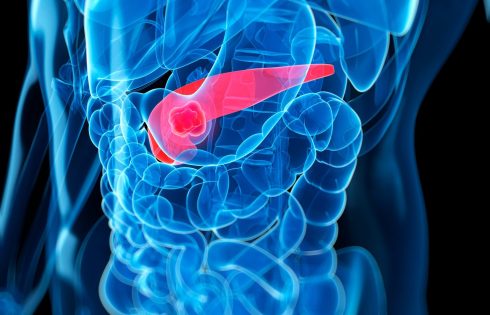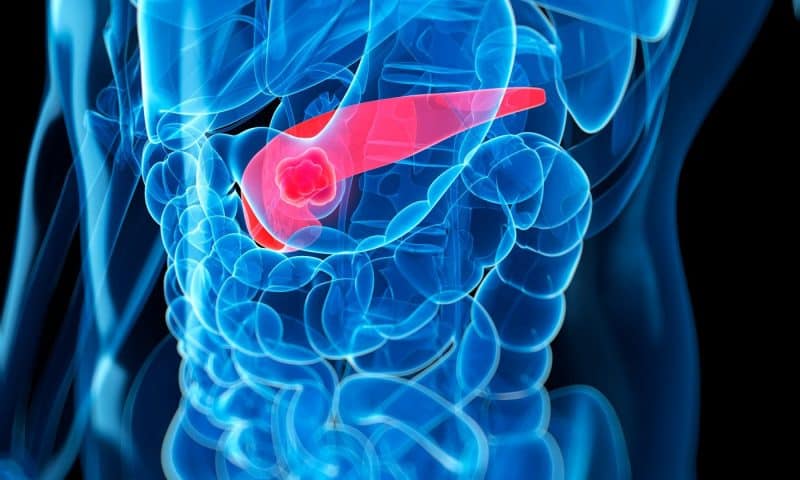
Pancreatic ductal adenocarcinoma (PDAC) is the most prevalent type of pancreatic cancer, characterized as a highly lethal malignancy that is often preceded by precancerous lesions. These lesions are relatively common, but only a small portion will progress to PDAC.
In a new study published in Cancer Research titled, “FGFR2 Abrogation Intercepts Pancreatic Ductal Adenocarcinoma Development,” researchers from Cold Spring Harbor Laboratory (CSHL) have identified a new mechanism to delay KRAS-mutated PDAC development in mice. While KRAS mutations are one of the most common oncogenes, standard targeted therapies leveraging KRAS inhibitors have seen limited success.
Led by David Tuveson, PhD, the Roy J. Zuckerberg professor of cancer research and cancer center director at CSHL, the research team analyzed murine and human pancreatic tissue specimens, and found that fibroblast growth factor receptor 2 (FGFR2) expression, a protein that plays a crucial role in cell growth, differentiation, and bone development, was higher in KRAS-mutated precancerous lesions and some KRAS-mutated PDAC, compared with normal tissue. Notably, FGFR2 expression in murine precancerous lesions correlated with an increase in mutant KRAS signaling.
Results showed that FGFR2 gene deletion led to significantly fewer precancerous lesions and delayed PDAC tumor formation compared with mice with an intact FGFR2 gene. In addition, the combined inhibition of FGFR2 and another signaling protein, EGFR, significantly reduced the formation of precancerous lesions in mice carrying mutated KRAS.
“We know that precancerous pancreatic lesions often carry KRAS mutations,” said Claudia Tonelli, PhD, lead author of the study and research investigator at CSHL. “Our observation that FGFR2 expression was associated with increased KRAS signaling suggests that FGFR2 may play a key role in driving the progression of KRAS-mutated precancerous lesions to malignancy,” said Tonelli.
Tonelli also noted that while mutations in the KRAS protein are known to drive pancreatic cancer, they do not appear to be sufficient to promote the transition from precancerous lesions to cancer.
“Understanding the additional pathways that promote progression from a precancerous pancreatic lesion to a malignant tumor could help identify more viable treatment strategies as well as cancer interception approaches to stop PDAC from developing in the first place,” Tonelli said.
The findings suggest that targeting FGFR2 could potentially benefit patients at high risk of their precancerous lesions progressing to PDAC. While FGFR inhibitors are clinically available, Tonelli cautioned that their effectiveness in intercepting PDAC would first need to be tested in clinical trials before they could be used for this purpose.
“Our study provides critical insights into pancreatic cancer development and could guide the development of strategies for the interception and prevention of pancreatic malignancies,” she said.
Additional projects in Tuveson’s cancer research lab explore changes in redox metabolism associated with pancreatic cancer tumorigenesis, dissect signaling by the Ras oncogene, discover new biomarkers of early pancreas cancer, and identify mechanisms of crosstalk between pancreatic cancer cells and the tumor stroma.
To dissect molecular changes associated with pancreatic tumorigenesis, the Tuveson lab has generated a large collection of human patient-derived organoid models. By measuring the therapeutic sensitivities of patient-derived organoids, the lab is working to identify novel strategies to treat patients as well as markers of therapeutic response.

